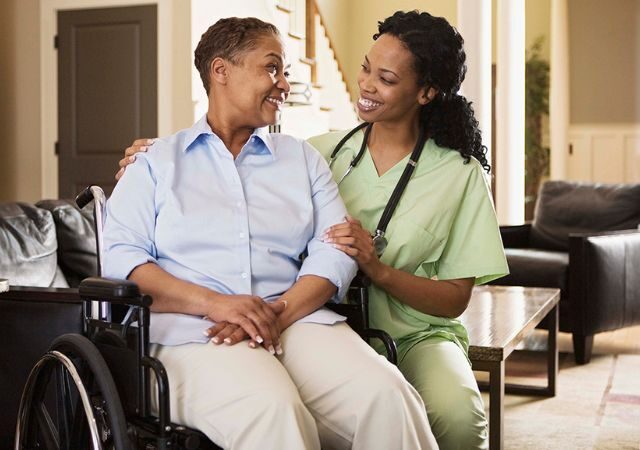Providing high-quality in-home care for elderly individuals involves a blend of practical health management and compassionate support. As our loved ones age, their needs often become more complex, requiring careful attention to their physical, emotional, and social well-being. Implementing effective in-home care practices can significantly improve their quality of life, ensuring they remain comfortable and healthy in a familiar environment. Here are nine of the best practices to consider for optimal elderly health management at home.
9 Best In-home Care Practices For Elderly Health Management
1. Personalized Care Plans

Developing a specialized care plan is necessary to cater to the particular requirements of older people in good health. Each person has unique health conditions, preferences, and requirements that must be considered. Begin by thoroughly assessing the individual’s medical history, current health status, and personal preferences. Collaborate with healthcare professionals to design a care plan that includes tailored medical treatments, dietary recommendations, and daily living assistance. Regularly review and update the care plan to adapt to any changes in health or personal preferences, ensuring that the care provided remains relevant and effective.
2. Medication Management
Proper medication management is crucial for maintaining the health and well-being of elderly health individuals. Many seniors take multiple medications, making it essential to ensure that they are taken correctly and at the right times. You should use a medicine organizer or dispenser to keep track of doses and schedules. Regularly review medications with a healthcare provider to check for potential interactions or side effects. Encourage adherence to prescribed treatments and provide reminders if necessary. Keeping a medication log can also help track any changes in health or side effects that should be reported to a doctor.
Read Also:- Best 10 Nutrition Tips for Elderly In Home Care
3. Regular Health Monitoring
Regular health check-ups identify any changes or problems early, enabling quick action. If applicable, implement a routine for checking vital signs such as blood pressure, heart rate, and blood sugar levels. Use health monitoring devices like blood pressure monitors or glucose meters and keep detailed records of the readings. Schedule regular check-ups with healthcare professionals to review these records and make any necessary adjustments to the care plan. Regular health monitoring helps manage chronic conditions effectively and promptly addresses any new health concerns.
4. Safe Home Environment
Ensuring a safe home environment is critical to prevent accidents and injuries. Conduct a thorough home safety assessment to identify hazards such as loose rugs, poor lighting, or uneven floors. Install safety features like grab bars in the bathroom, handrails on stairs, and non-slip mats in the shower. Ensure that emergency contact numbers are readily accessible, and consider installing a medical alert system for immediate assistance in case of an emergency. Keeping a clutter-free and orderly living area lowers the possibility of falls and other mishaps, therefore creating a safer and more pleasant house.
5. Nutritional Support

Proper nutrition is vital for maintaining overall health and managing chronic conditions. Develop a balanced meal plan that includes a variety of fruits, vegetables, whole grains, lean proteins, and low-fat dairy products. Consider any dietary restrictions or medical conditions affecting food choices, such as diabetes or heart disease. Encourage regular hydration and provide nutritious snacks to maintain energy levels. If cooking becomes challenging, explore options for meal delivery services or prepare meals in advance to ensure that healthy, well-balanced meals are consistently available.
6. Physical Activity
Incorporating physical activity into daily routines can improve strength, mobility, and overall health. Tailor exercise routines to the individual’s abilities and preferences, focusing on activities that enhance flexibility, balance, and endurance. The maintenance of one’s physical health may be accomplished by using simple workouts such as walking, stretching, or chair exercises. Encourage participation in activities that the individual enjoys, such as gardening or dancing, to make exercise enjoyable. Always consult with a healthcare provider before starting a new exercise program to ensure that it is safe and appropriate for their health condition.
7. Emotional and Social Support
Emotional well-being is as important as physical health in elderly care. Provide opportunities for social interaction by encouraging participation in community events, family gatherings, or virtual social platforms. Engage in activities that the individual enjoys, such as hobbies or games, to promote mental stimulation and happiness. Offer emotional support through active listening, empathy, and reassurance. See a professional counselor or support group if necessary to help with any emotions of despair or loneliness. Ensuring the elderly health feel valued and connected can significantly enhance their overall quality of life.
8. Personal Hygiene and Grooming
Comfort and dignity depend on one keeping personal cleanliness and grooming. Create a grooming, dental, and bathing schedule that honors personal preferences and requirements. Help with everyday tasks like nail clipping, cleaning teeth, and hair combing. Ensure that personal care products are appropriate for sensitive skin and allergens-free. Regular hygiene practices help prevent infections and maintain a sense of well-being. If the individual has difficulty with personal care tasks, consider using adaptive equipment or seeking assistance from a caregiver.
Read Also:- How To Select The Right Caregiver For Elderly Parents
9. Effective Communication

Providing excellent in-home treatment depends on good communication. Maintain open and honest dialogue with the elderly health individual about their needs, preferences, and concerns. Use clear, simple language and be attentive to non-verbal cues. Urge others to freely communicate their ideas and emotions and pay close attention to their comments. Communicate regularly with other family members and healthcare professionals involved in their care to ensure coordinated and consistent support. Good communication fosters trust and collaboration, providing a more positive caregiving experience.
Conclusion
Implementing these nine best in-home care practices can significantly enhance the health and well-being of elderly individuals. Each practice is crucial in delivering comprehensive and compassionate care, from personalized care plans and medication management to ensuring a safe home environment and providing emotional support. Caregivers may provide a loving and encouraging atmosphere that supports a good quality of life by attending to senior citizens’ social, emotional, and physical needs. Regularly reviewing and adjusting care practices based on individual needs and health changes will ensure continued effectiveness and satisfaction.
FAQs
How often should the care plan for an elderly person be reviewed?
The care plan should be reviewed at least every six months or sooner if there are significant changes in the individual’s health or circumstances. Regular reviews ensure that the care plan remains relevant and effective in meeting the person’s evolving needs.
What are some signs that medication management might need to be adjusted?
Frequent forgetfulness, unexpected side effects, changes in health status, or difficulty taking medications as prescribed are signs that medication management might need adjustment. If any of these signs are observed, consult with a healthcare provider for a review and possible adjustment of the medication regimen.



